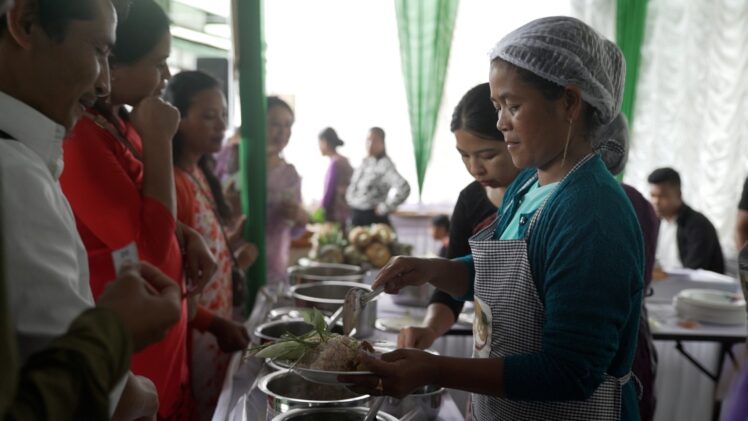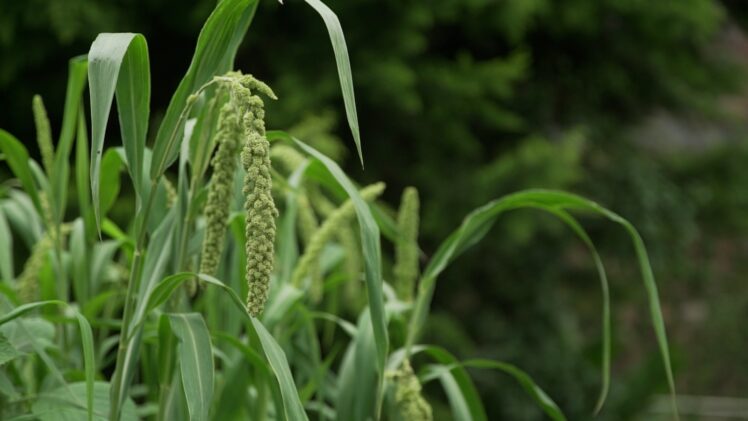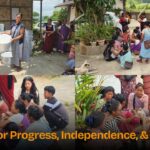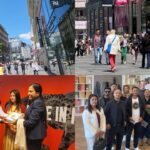
Why are indigenous communities crucial to the world? The answer is in the question – they are indigenous which means – their way of life, their deep connection with the land and forests, and their food systems are what the world needs to maintain the balance of ecosystems.
According to the United Nations, Indigenous Peoples make up less than 6 percent of the global population, and their territories encompass 28 percent of the surface of the globe and contain 11 percent of the world’s forests.
They are the guardians of most of the world’s remaining biodiversity.
In an era where climate change has become the biggest threat to humans, going back to the roots isn’t a bad idea after all.
Many Indigenous communities have a deep connection to their lands and possess traditional ecological knowledge that promotes sustainable living. Their practices often contribute to conservation and biodiversity, helping to maintain the balance of ecosystems.
Meghalaya, where most of the inhabitants are Indigenous with their age-old traditions of conservation and preservation, can lead the way in the fight against climate change. With this thought in mind, the North East Society for Agroecology Support (NESFAS) is working towards ensuring that the indigenous way of life and the food systems are revived.

“In the last 10 years, NESFAS has worked hard to involve the communities in our movement. In 2012, we started with only one village to promote millet – which at that time, was going to be a crop of the past for the Khasis. But I am happy to inform you that today, we have more than 200 villages working with us,” Executive Director of NESFAS, Pius Ranee told 4Front Media.
This movement has struck a chord not only with the communities of Meghalaya but has also spread to countries like Mexico, Thailand, Kenya, and Indonesia.
To expand its network and further its goal towards enhancement of agrobiodiversity, leading to food sovereignty, NESFAS launched the Mei Ramew State Agroecology Co-operative Society, on August 9. This Society is made up of 19 Primary Cooperatives representing 19 villages.
August 9 also coincided with the International Day of the World’s Indigenous Peoples, to recognise the achievements and contributions that Indigenous people make to improve world issues such as environmental protection.
The launch was also accompanied by a Mei-Ramew farmers’ market where local produce and cuisine from across communities that NESFAS works with were sold.
ALSO WATCH
ORGANIC FARMING AND LIVELIHOOD
The Mei Ramew State Agroecology Co-operative Society aims to support the local economy by providing vocational training, encouraging innovation, and inspiring people to adopt environment-friendly methods of farming and other activities.
While admitting to the different economic challenges faced by the farmers, Ranee listed the number of models that NESFAS has adopted to support the farmers and make them self-sufficient.
“One of those models is the Mei Ramew Café; this is working well. Farmers have been able to sell their products in their respective villages. Then we have regular farmer markets, school meals, and kitchen gardens.
“We plan to have organic markets in several villages. We will saturate the cooperative societies in every village so that our aim to build a circular economy is achieved,” the NESFAS Executive Director informed.
What is a Circular Economy? It is a system where materials never become waste and nature is regenerated. It is a model of production and consumption, where buying and selling happen within a village, a block, or a locality. “With the circular economy, we can be sure of achieving our climate target and reducing carbon emission,” Ranee added.
The Society is set to prepare the Primary Cooperatives members in terms of capacity building, business plans, bookkeeping, and networking amongst other activities.







